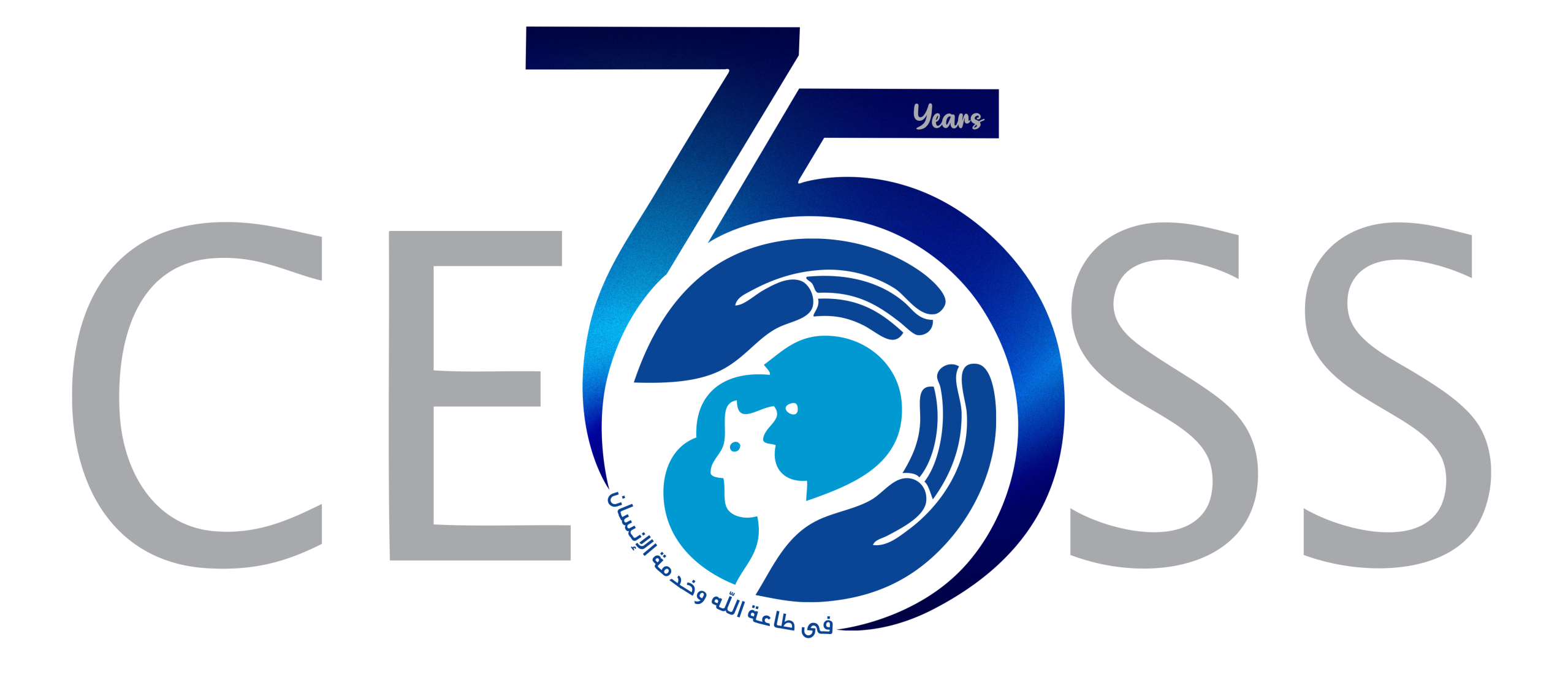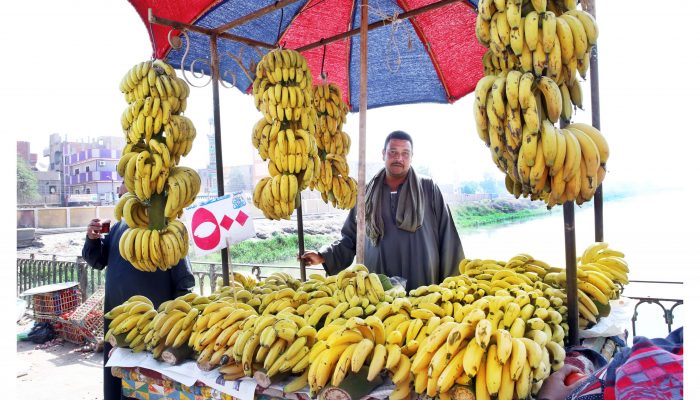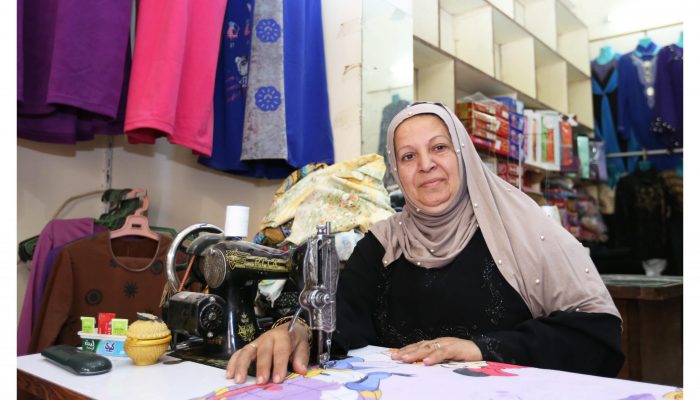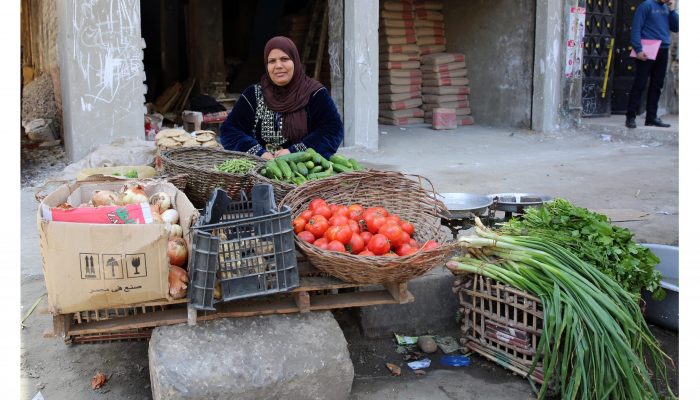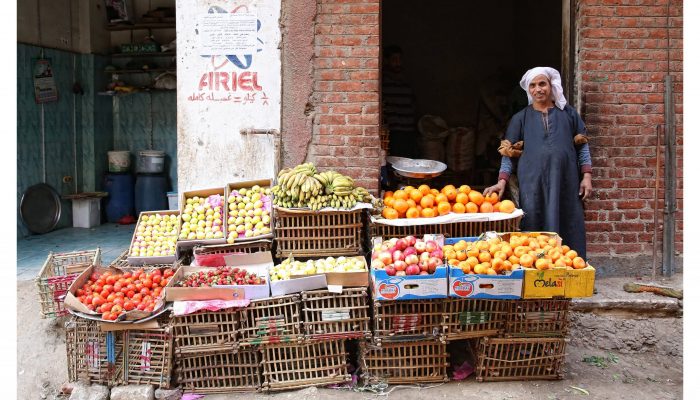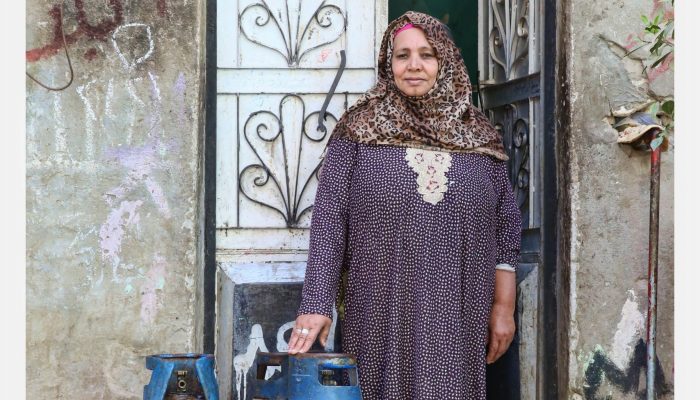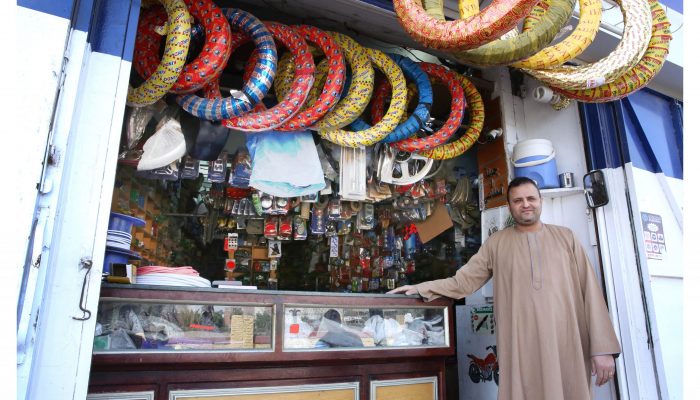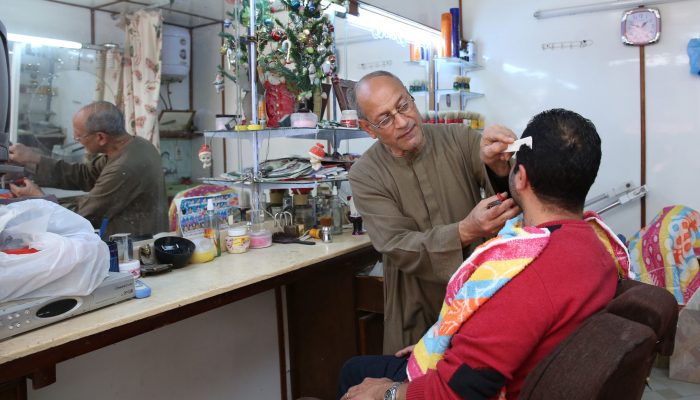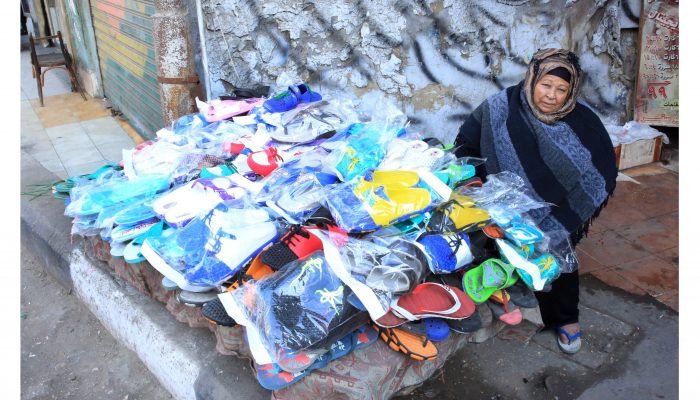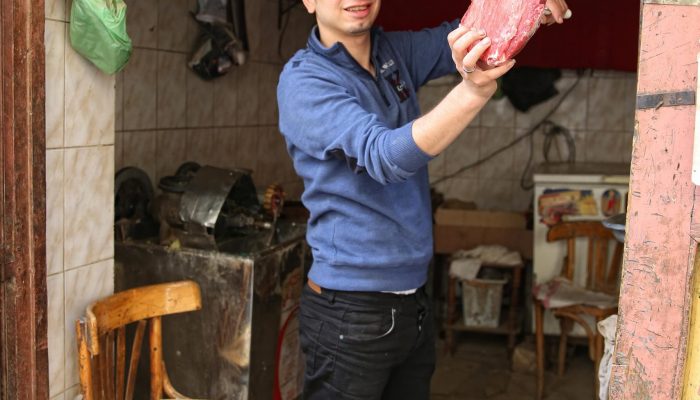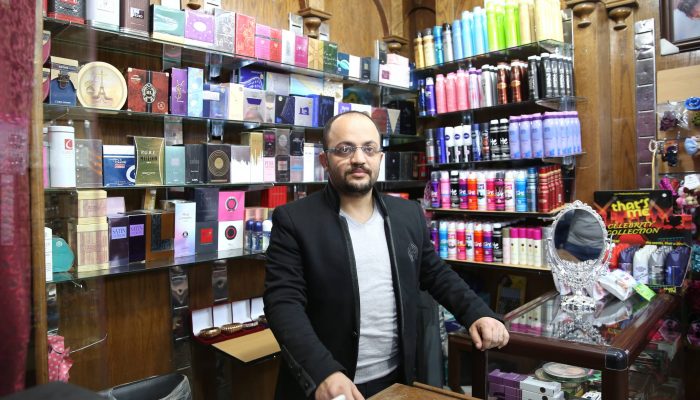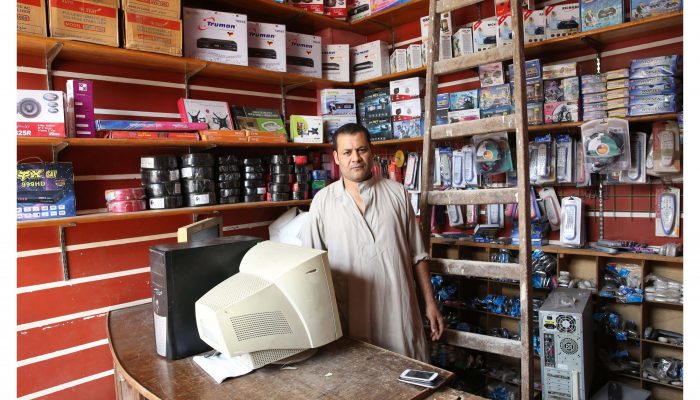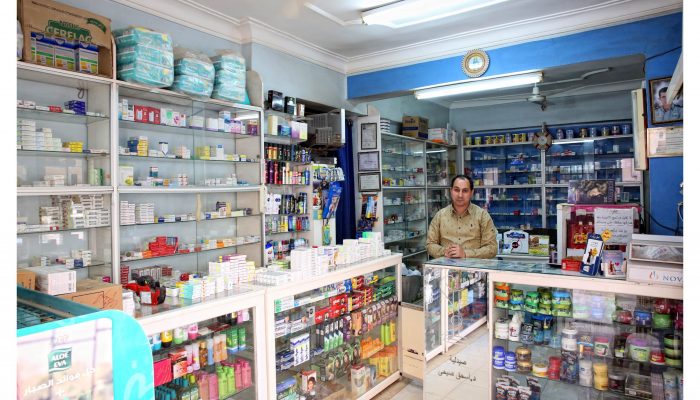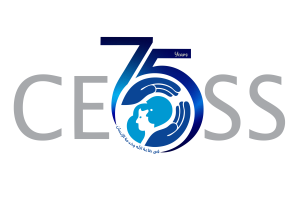Economic Development Program
This field focuses on the economic empowerment of poor groups of youth of both sexes as well as women in poor and marginalized communities for the sake of empowering them to obtain decent employment opportunities and thus an increase in income to secure a decent life. During this year, the Local Development Unit worked in two main tracks, namely, training for employment and expanding business development services for the owners of small and micro enterprises. This is besides economic empowerment of women working in the informal sector.
a- Training, employment, and providing business development services for owners of small and micro enterprises
The program aims at enhancing a comprehensive economic growth environment through a civil society that has the ability to provide developmental and entrepreneurial services, as well as providing youth with the necessary technical and management skills and enhancing their abilities to improve their economic situations and empowering them to live a dignified life.
Quantitative Achievements
704 youth had their technical and management skills raised and empowered to join the labor market
596 young men and women have received technical and management training
108 young men and women have been employed and have joined the labor market
Major Qualitative Achievements
- This year the economic development program adopted the entrepreneurial input as one of the major interventions for empowering youth to find businesses of added value. In this context, the following was achieved:
- Establishing a central unit for providing entrepreneurship development services (EDSU) inside CEOSS headquarters to meet small and micro enterprises owners’ needs for these services at all levels. During this year, the unit produced a series of training materials in the field of entrepreneurship and franchising to provide innovative input (micro franchising, mobile applications, and vouchers) to support entrepreneurs.
- Establishing 12 sub EDSUs to provide entrepreneurship development services in Minia, Beni-Suef, and Sohag Governorates. These offer their services to young entrepreneurs owning startups and established enterprises through directing and training youth by 36 mentors who have received capacity building for providing these services.
Major Partnerships
- Building active partnerships with the Small, Medium, and Micro Enterprise Development Agency, University Center for Career Development (UCCD) in Minia University affiliated to the American University in Cairo, Sela Academy, CHF Company, and MAIAAL Company. All these partnerships have resulted in benefitting from the experiences of all these entities in providing training and specialized technical support in the field of developing entrepreneurship for the central EDSU team and the mentors in the sub EDSUs.
- Organizing an experience exchange visit to “Our Heritage” exhibition that is the largest exhibition for heritage handicrafts in coordination with the Small, Medium and Micro Enterprise Development Agency
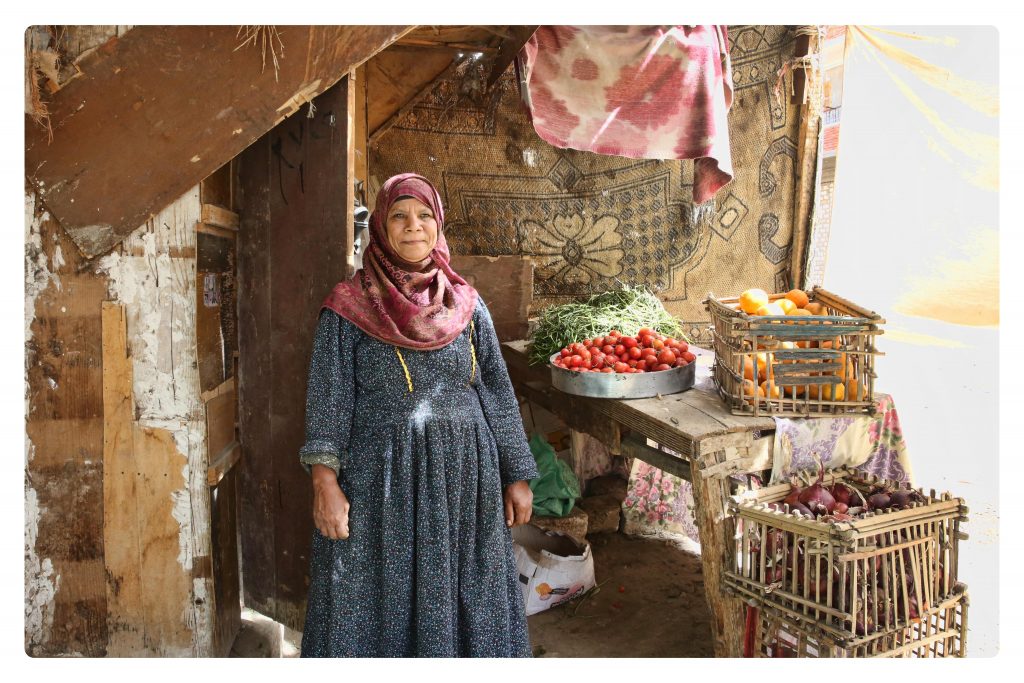
b- Economic empowerment of women working in the informal sector
The Local Development Unit continues to improve the livelihood of female households working in the informal sector in poor rural and urban areas in 30 local communities in five governorates (Qalyoubia, Cairo, Giza, Beni-Suef, and Minia). The unit aims to improve the quality of life for these women through capacity building and empowerment activities, as well as enhancing the capacity of civil society in increasing their contribution to reducing poverty and marginalization for poor women in both urban and rural areas.
Quantitative Achievements
2246 women working in the informal sector have been economically and socially empowered
211 women accomplishing training programs empowering them to join the labor market and integrate in the formal sector
95 women have signed long term contracts in the formal sector
68 women have obtained technical and legal support through the resource center established to support women in the work communities
68 women obtaining technical and legal support through the resource centers established for supporting women in the work communities
96 women succeeding in obtaining required civil documents and official papers
95 women subscribed to insurance plans
1681 individuals in the informal sector obtaining services (health, education, financing, …etc.)
Major Qualitative Achievements
-Reinforcing the capacities of 171 CBO representatives and elected committees to support the causes of women working in the informal sector
– Empowering groups of women to manage and run 20 production units in which women work in an environment that secures decent work standards
– Establishing three official entities that support the sustainable protection of women’s rights in the rural and urban sectors in Qalyoubia, Beni-Suef, and Minia Governorates
– Signing a cooperation protocol with the Faculty of Agriculture, Banha University, for joint cooperation in all the services they offer including supporting the skills of women in working in the rural sector in the field of food processing and marketing their products in the local markets
– Conducting several events to disseminate the ILO International Convention number 190 for the support of women in a safe working environment under the motto of “Towards a Safe Work Environment”. It also included raising awareness of the rights of working women in being protected from harassment, violence, and discrimination in wages and number of working hours.
– In cooperation with the Arab Network for NGOs, three online events were conducted to exchange experiences on the best inspiring developmental practices on improving the situation of women working in the informal sector, entrepreneurship, and financial inclusion in Egypt and the Arab region (models from the Kingdom of Bahrain, the Hashemite Kingdom of Jordan, the Republic of Sudan, Tunisia, and the Kingdom of Morocco) in order to create learning opportunities and disseminate knowledge among workers in the development field in NGOs, the private sector, and the government sector. This is besides presenting development models that have positive social and economic impacts on the more vulnerable groups in our local communities. Attendees included 120 representatives of partnering organizations in the local communities, groups of women participating in the project, the media, representatives of the ministries of Social Solidarity, and Manpower, and a number of national and international consultants.
